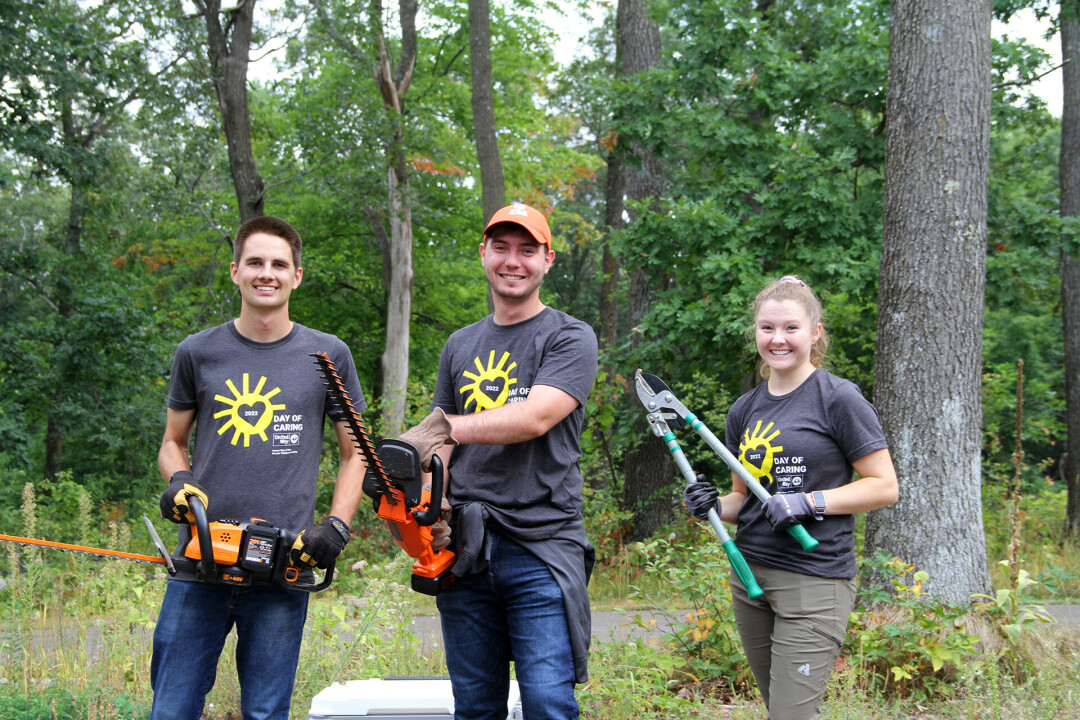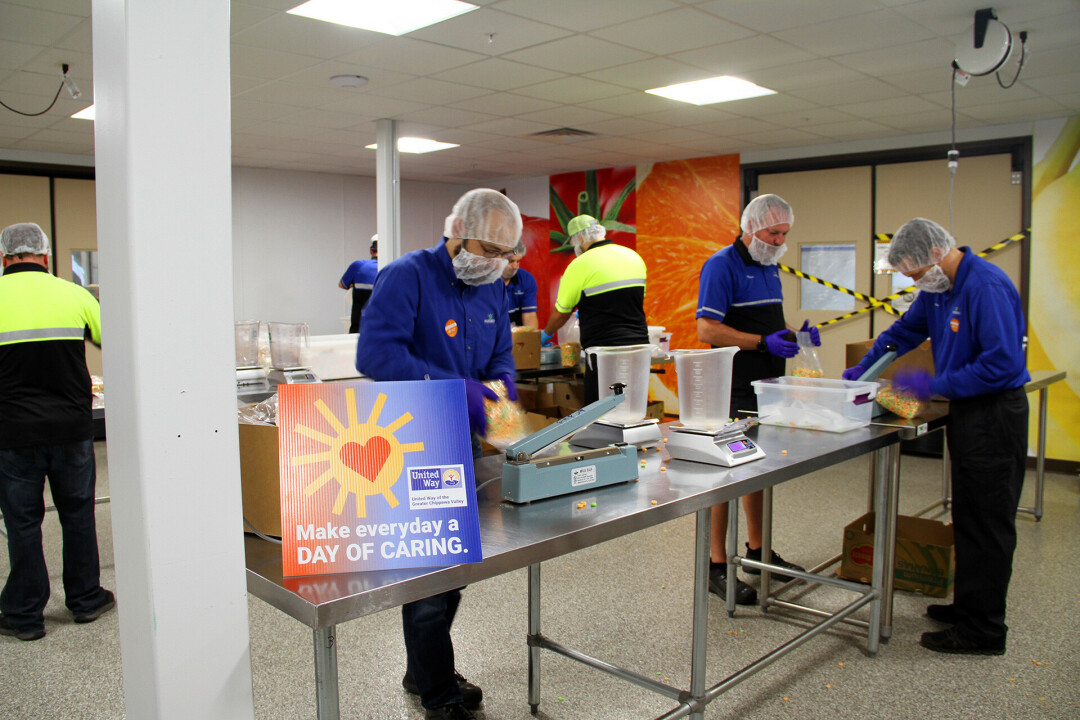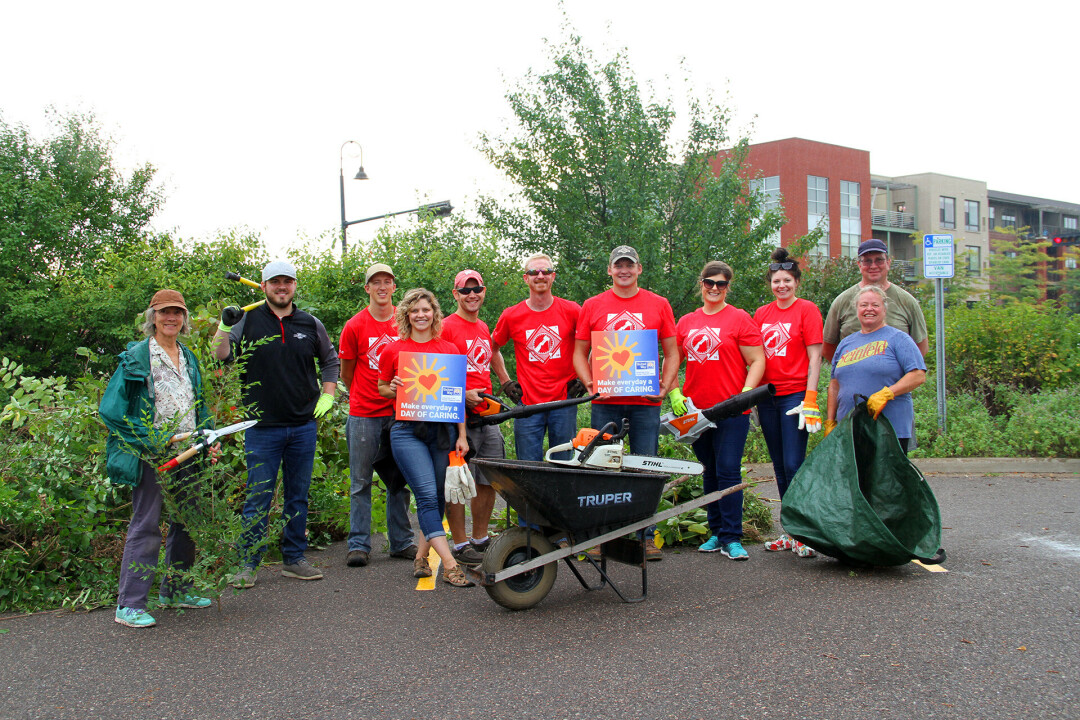Five Reasons to Get Involved in Your Community
Connecting with your community can bring big benefits. Here are some of them

We all lead busy lives – or at least they feel busy. They’re filled up with activity: at work, at home, with family, with friends, with obligations that pile up like emails in our inbox. Often, the obligations are emails in our inbox. So much of life in the 21st century is lived digitally that, outside of our immediate family, work, and social circles, it seems the only contact we have with those we don’t know well is saying “thanks” to the person in the fast-food checkout.
So what can be done about this feeling of isolation? What if we told you that there’s something you can do that will fight loneliness, enrich your personal and professional lives, and make the world around you better?
That something, simply put, is getting involved with the community. Whether it’s through an informal neighborhood group, a nonprofit volunteer organization, or a structured social club, there are countless ways to connect with our communities if we just step outside our comfort zones. That’s why we created this new special section, Community Connections.
And, if you need further convincing, here are five big reasons to get involved:
1. IT WILL IMPROVE THE PLACE YOU LIVE.
As the old bumper sticker reminds us, “Think globally, act locally.” And the statistics about community involvement bear this out. According to a 2019 study conducted by volunteer services firm Sterling Volunteers, two-thirds of volunteers do so to improve their communities, and 83% do it to “contribute to a cause they care about.”
In the Eau Claire area, groups like the United Way of the Greater Chippewa Valley help link individuals and employers with organizations that could use help, whether through donations or a bit of elbow grease. “We’re that organization that can connect those dots for people,” says Andy Neborak, executive director of the United Way of the Greater Chippewa Valley. In September, the United Way’s annual Day of Caring engaged 450 volunteers in 40 projects at 29 different sites. Year-round, the majority of what the United Way does is raise funds for grants that improve the health, education, and financial stability – and meet the basic needs of – people around the Valley.

2. IT WILL MAKE YOU FEEL BETTER.
It’s self-evident that getting involved in something outside your usual routine can help combat isolation. “I can’t ignore the positive mental health experience of giving back, the feeling of fulfillment,” adds the United Way’s Neborak. “Giving your time to someone who needs it can really fill your bucket.”
There’s plenty of research to back up such sentiments. According to a British study, 96% of volunteers “reported feeling happy with the experience, with 9 in 10 reporting that volunteering provided enjoyment, a sense of personal achievement and purpose.”

3. YOU’LL MAKE FRIENDS.
Local nonprofit leader Ann Kaiser says involvement in community groups is a great way to expand your ties with other people. “It’s fun to make connections across industries and what you might call social groups,” Kaiser says of her involvement with the Women’s Giving Circle. “I connect with women through Women’s Giving Circle that I don’t otherwise connect with.”
The Women’s Giving Circle, a fund of the Eau Claire Community Foundation, is a group of nearly 250 local woman who make an annual donation of $250 each. Half of the funds go to an endowment, and half are given out in grants each year to programs that benefit the lives of women and children in the Chippewa Valley.
Kaiser, who also serves as CEO of the Boys & Girls Clubs of the Greater Chippewa Valley, said groups such as the Women’s Giving Circle that combine philanthropy with social connection can build bonds among people who wouldn’t otherwise know each other. “The wide age span of women that are involved and that rich diversity of perspectives really make it unique,” she said.

4. YOU’LL BUILD A NETWORK.
Joining a community or volunteer group is a great form of professional development, too. Some organizations – such as the Young Professionals of the Chippewa Valley – are specifically intended to provide these sorts of connections. But they occur in plenty of other kinds of groups as well. Consider organizations like the Kiwanis Club of Eau Claire. Club President Larry Accola – who in his professional life is market president for Merchants Bank in Eau Claire – has been active in Kiwanis for more than 30 years.
“Let’s say there’s an insurance agent in the club, and I want to investigate my car insurance,” he says. “Chances are I’m going to talk to that person first, just because I known them.”
Accola pointed to a recent quote from Bert West, the incoming president of Kiwanis International: “When you serve alongside someone, whether it’s at a pancake breakfast or on a playground, whatever it is, they realize you have something extra in common – in a way you don’t when you’re handing your business card to them.”
5. YOU’LL LEARN ABOUT THE COMMUNITY – AND THE WORLD.
Along with making personal connections, community groups help teach members about the community. Whether by volunteering directly with local organizations or hearing from speakers, members of these groups get a more complete picture of the Chippewa Valley. Consider, for example, the Women’s Giving Circle, which in recent months has held educational events on everything from finding solutions to homelessness in the Chippewa Valley to the impact of the war in Ukraine.
“It expands your knowledge of what’s going on in the community,” says Accola, the Kiwanis leader, of being part of a community group. “You realize that there’s people that are less fortunate perhaps than a lot of people that you may be deal with on a daily basis. … You see the needs of the community.”
As Neborak, of the United Way, puts it: “Our community is only as strong as the people in it, and working together is more important now than ever.”


